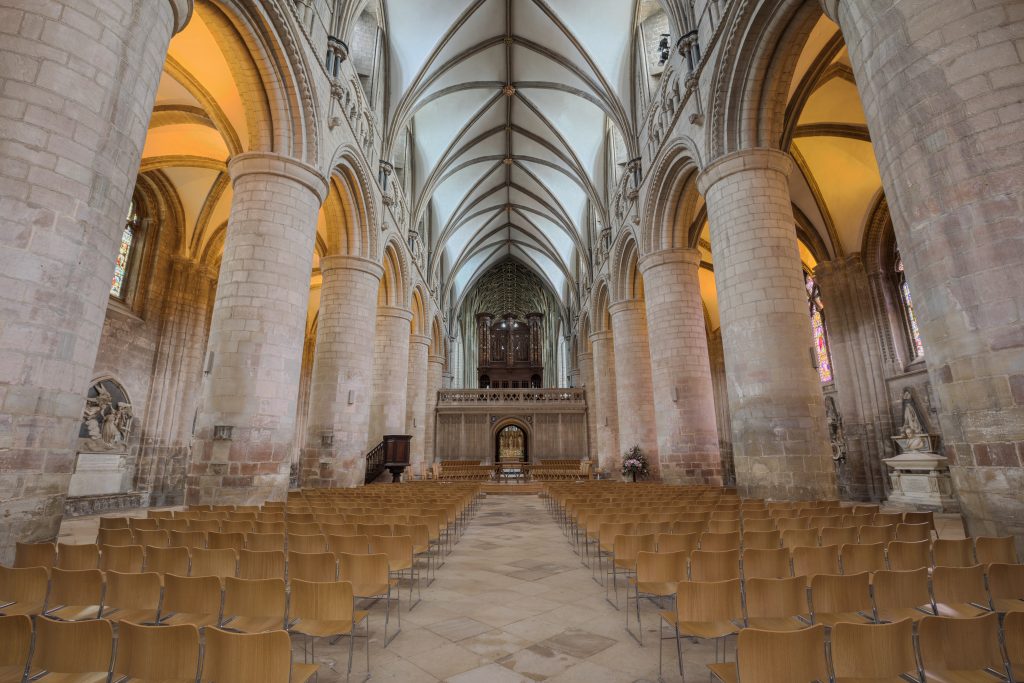*This post is the latest in a series looking at the Sabbath. Previous posts include: Pre-Puritan Sabbatarians? Martin Bucer’s De Regno Christi, Pre-Puritan Sabbatarians (Part 3), Pre-Puritan Sabbatarins? (Part 2), Pre-Puritan Sabbatarians? Henry Bullinger on the Sabbath (Part 1), Where is the Sabbath in the Early Church (Part 3), Where is the Sabbath in the Early Church? (Part 2), Where is the Sabbath in the Early Church? (Part 1), Ecclesiological Implications of the Sabbath (Part 2), Ecclesiological Implications of the Sabbath (part 1), Sabbath Typology and Eschatological Rest, Paul and the Sabbath, Jesus and the Sabbath, The Sabbath and the Decalogue in the OT, a look at God’s Rest as Prescriptive, an examination of the Sabbath as a Creation Ordinance.
In this post I will examine the Sabbatarian thought of one of the earliest English Puritans to write on the subject: Nicholas Bownd.
Nicholas Bownd
Nicholas Bownd (d. 1613) was an early Puritan pastor and three-time graduate of Cambridge (B.A. in 1572; M.A. in 1575; and D.D. in 1594).[1] He pastored a church in Norton, Suffolk, and later was made the rector of St. Andrews, in Norwich. Bownd was the step-son of the great early Puritan, Richard Greenham. [2] We will examine Bownd’s work The Doctrine of the Sabbath because, according to Robert Cox in his impressive compendium of Sabbath literature, this work represents the first time that sabbatarian opinions were “broadly and prominently asserted in Christendom.”[3] His 1606 edition represents both his most mature thoughts on the subject and his most in-depth interaction with continental thought; thus, this edition will be our primary text. The influence of Bownd’s treatise on the Sabbath was vast. Whitaker remarks that the publication of Bownd’s work was “an outstanding landmark” in the history of Sunday observance.[4] Indeed, to The True Doctrine of the Sabbath one historian attributes, “the revival of a strict keeping of the Sunday.”[5] It is to this Sabbatarian doctrine that we will now turn.
Bownd’s sabbatarianism is strikingly similar to Bullinger’s, and it shares many of Bucer’s practical and pastoral emphases. For Bownd, the Sabbath is based in the creation week, universal, perpetual, moral, should be enforced by Christian magistrates, and is to be primarily observed with the local congregation.
Sabbath is Universal
Bownd makes clear that God purposely chose to number seven days in a week, and that the sanctification of the seventh day points so clearly to the creation week that heathens, who chose not to observe the Sabbath, were therefore made ignorant of the true creation story. Bownd argues that the purpose of “the seventh day, and the Rest in it tended unto this end; first, that we might know God to be the creator of all things; and then that by the example of God we might rest from our own works; and by meditating upon the works of God might know whose great things those are, that God hath prepared for those that love him, after the end of this world.” The Sabbath serves as a signpost for this forgetful world: “As they that are ignorant, or may easily mistake a way, have marks set up in the highways for them, to guide them: so this was a notable and famous sign set up by God himself, to teach the forgetful world, that God made it in six days, and all things in it.”[6] The day of rest is a weekly reminder that God is the creator.
Furthermore, from this logic Bownd warns that should people today forsake Sabbath observance, they would likewise be made ignorant of the redemption to which the Lord’s Day now points. From the purpose of the Sabbath we see, “how it is to be feared, that if we also did not keep the memory of this seventh day, that we do, that the memory of Christ’s death and resurrection should be in time clean forgotten…For if the ignorance of that first seventh day bred that heresy [earlier], why may not the ignorance of this seventh day also work the like effect in the wisest of our time, or of the posterity?”[7] Bownd believed that because of the things signified by Sabbath observance—God’s creative work and work of redemption— to forsake the Sabbath is to forsake God. Furthermore, because Sabbath observance is based in creation, to duty to sanctify the Sabbath is incumbent upon all of creation.
Because Sabbath rest is installed at the beginning of time and part of the covenant that God made with creation, every created being is duty-bound to sanctify the day. Bownd, quoting Zanchinus, argues that God, “would have none excluded from the sanctification of the Sabbath, because that both servants and masters; as well children as parents; and the strangers as well as those that are borne at home, are bound unto the Lord, and are made for his worship and service.” Furthermore, Bownd explains that the pattern of six days of work and one day of rest be “just and equal in the eyes of all men both Grecian and Barbarian, bond and free.”[8] No one is free from the duty of Sabbath observance– neither Jew nor Gentile, rich nor poor.
In the next posts I will explain Bownd’s views on the perpetuity, morality, and enforcement of the Sabbath.
[1]See “Bound, Nicholas (BNT568N)”. A Cambridge Alumni Database. University of Cambridge: http://venn.lib.cam.ac.uk/cgi-bin/search.pl?sur=&suro=c&fir=&firo=c&cit=&cito=c&c=all&tex=%22BN T568N%22&sye=&eye=&col=all&maxcount=50 (Accessed April 1, 2014).
[2]While Richard Greenham is often cited as the originator of Puritan Sabbatarianism, Bownd actually published his first sabbatarian treatise several years before Greenham. Because of their cotemporaneous publishing on the subject, and because Bownd’s work had a broader influence, Bownd will be the focus of our study. Furthermore, their sabbatarian doctrine is almost identical; Bownd is merely more thorough. Indeed, Primus states that “there is little in Bownd’s work that is not already present in embryo in Greenham’s,” (John H Primus, Richard Greenham: Portrait of an Elizabethan Pastor [Macon, GA: Mercer University Press, 1998], 152).
[3] Nicholas Bownd, Sabbathum Veteris et Noui Testamenti: Or the True Doctrine of the Sabbath, Held and Practised of the Church of God, Both Before, and Vnder the Law; and in the Time of the Gospell Plainly Laid Foorth and Soundly Prooued by Testimonies Both of Holie Scripture, and Also of Old and New Ecclesiasticall Writers: Fathers and Councels, and Lawes of All Sorts, Both Ciuill, Canon, and Common. Declaring First from What Things God Would Haue vs Straightly to Rest Vpon the Lords Day: And Then by What Meanes We Ought Publikely and Priuately to Sanctifie the Same. Together with the Sundrie Abuses of Men in Both These Kindes: And How They Ought to Be Reformed. Diuided into Two Bookes by Nicolas Bovvnd Doctor of Diuinitie: And Now by Him the Second Time Perused, and Inlarged with an Interpretation of Sundrie Points Belonging to the Sabbath … (Imprinted at London: By Felix Kyngston, for Thomas Man and Iohn Porter, 1606), accessed March 31, 2014, http://gateway.proquest.com/openurl?ctx_ver=Z39.88-2003&res_id=xri:eebo&rft_val_fmt=&rft_id=xri:eebo:image:7252; Robert Cox, The Literature of the Sabbath Question (Edinburgh: Maclachlan and Stewart, 1865), 146.
[4]Wilfred B. Whitaker, Sunday in Tudor and Stuart Times (London: Houghton, 1933), 56.
[5]Thomas Fuller, The Church History of Britain, from the Birth of Jesus Christ until the Year MDCXLVIII. (London: T. Tegg, 1837), cited in Whitaker, Sunday in Tudor and Stuart Times, 56.
[6]Bownd, Sabbathum Veteris et Noui Testamenti, 247. Quotes have been updated to reflect modern spelling.
[7]Bownd, Sabbathum Veteris et Noui Testamenti,64–65.
[8]Ibid., 247.





















